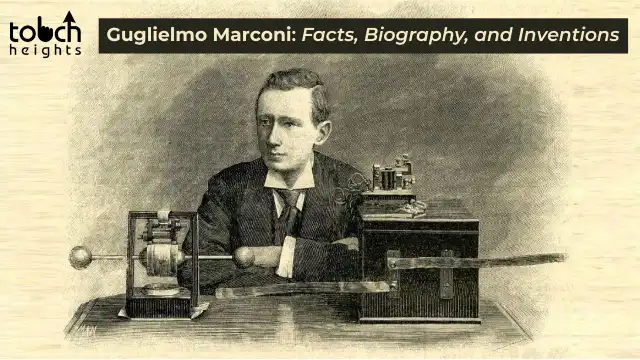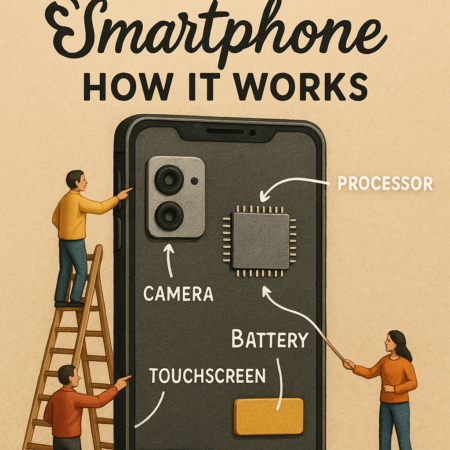Italian electrical engineer and inventor Guglielmo Marconi is credited with creating the first operational wireless telegraph system utilizing radio waves. He was a pioneer in the field of radio, earning him the title “father of radio” often.
The first transatlantic radio signal was successfully delivered by Marconi in 1901, which was a significant turning point in the evolution of long-distance radio communication. Later, he established the Marconi Wireless Telegraph Company, which played a significant role in the growth of commercial radio communication. For his contributions to the industry, Marconi won several prizes and honors, including the Nobel Prize in Physics in 1909.

Biography of Guglielmo Marconi
Italian electrical engineer and inventor Guglielmo Marconi (1874–1937) is credited with creating the first operational wireless telegraph system utilizing radio waves.
Italian-born Marconi showed an early interest in science and technology. He was born in Bologna. His interest in the research done by Heinrich Hertz and James Clerk Maxwell on the propagation of electromagnetic waves led him to start his wireless communication experiments.
The first successful test of wireless telegraphy was accomplished by Marconi in 1895 when he successfully transmitted a radio signal over a few kilometers. Later, he founded the Marconi Wireless Telegraph Company, a key figure in the growth of commercial radio communication.
The first transatlantic radio signal was successfully delivered by Marconi in 1901, which was a significant turning point in the evolution of long-distance radio communication. He kept creating new technology, and he received several patents for his creations.
For his contributions to the industry, Marconi won several prizes and honors, including the Nobel Prize in Physics in 1909. At the age of 63, he passed away in 1937.
Overall, Marconi’s groundbreaking work in wireless communication helped establish the groundwork for the advancement of contemporary radio and telecommunications technologies. Because of his substantial contributions to the industry, he is sometimes referred to as the “father of radio.”
Guglielmo Marconi Amendments

Italian electrical engineer Guglielmo Marconi’s Inventions made fundamental advances to wireless communication. His significant accomplishments include:
- Creation of the first effective wireless telegraph system: Marconi created a method for sending telegraph messages using radio waves. This served as the first real-world example of wireless telegraphy and served as the impetus for the advancement of contemporary radio communication technologies.
- The first transatlantic radio signal was sent by Marconi in 1901, which was a significant turning point in the evolution of long-distance radio communication.
- Establishment of the Marconi Wireless Telegraph Company: Marconi founded this organization, which went on to play a significant role in the advancement of commercial radio communication.
- Creation of new technologies: Marconi proceeded to create new ones, and his innovations, such as advancements in wireless telegraphy and the creation of long-distance radio communication, were granted multiple patents.
In sum, Marconi’s contributions to wireless communication helped establish the groundwork for the advancement of contemporary radio and telecommunications technologies, and he is sometimes regarded as one of the forefathers of radio transmission.
When the Titanic sank

In almost all oceangoing passenger and cargo ships by 1910, Marconi Company radiotelegraph sets, operated by skilled “Marconi Men,” had become standard equipment. On April 14, 1912, shortly before midnight, the RMS Titanic sank after colliding with an iceberg. Jack Phillips and Harold Bride, telegraph operators for the Marconi Company, were able to send the RMS Carpathia to the site in time to save almost 700 people.
Maroni gave testimony about the use of wireless telegraphy in marine catastrophes on June 18, 1912, in front of a court of inquiry examining the Titanic disaster. The calamity, according to Britain’s postmaster-general after hearing his evidence, was “saved through one man, Mr. Marconi, and his marvelous invention,”
Awards for Guglielmo Marconi

Guglielmo Marconi won several accolades and prizes for his contributions to the wireless communication industry. Among the most prestigious honors are:
- Nobel Prize in Physics: In 1909, Marconi and Karl Ferdinand Braun both received the Nobel Prize in Physics “in recognition of their contributions to the development of wireless telegraphy.”
- Knight Grand Cross of the Order of the Crown of Italy: In 1924, Marconi received the honorary title of Knight Grand Cross of the Order of the Crown of Italy.
- Legion of Honour: In 1925, Marconi received the Legion of Honour, which is France’s highest honor.
- Royal Society of Arts: In 1927, Marconi received the Albert Medal from the Royal Society of Arts.
- IEEE Medal of Honour: In 1944, Marconi received the Institute of Electrical and Electronics Engineers’ highest honor, the IEEE Medal of Honour.
These honors honor Marconi for his groundbreaking work in wireless communication and his substantial contributions to the advancement of Guglielmo Marconi’s radio and telecommunications technologies.







